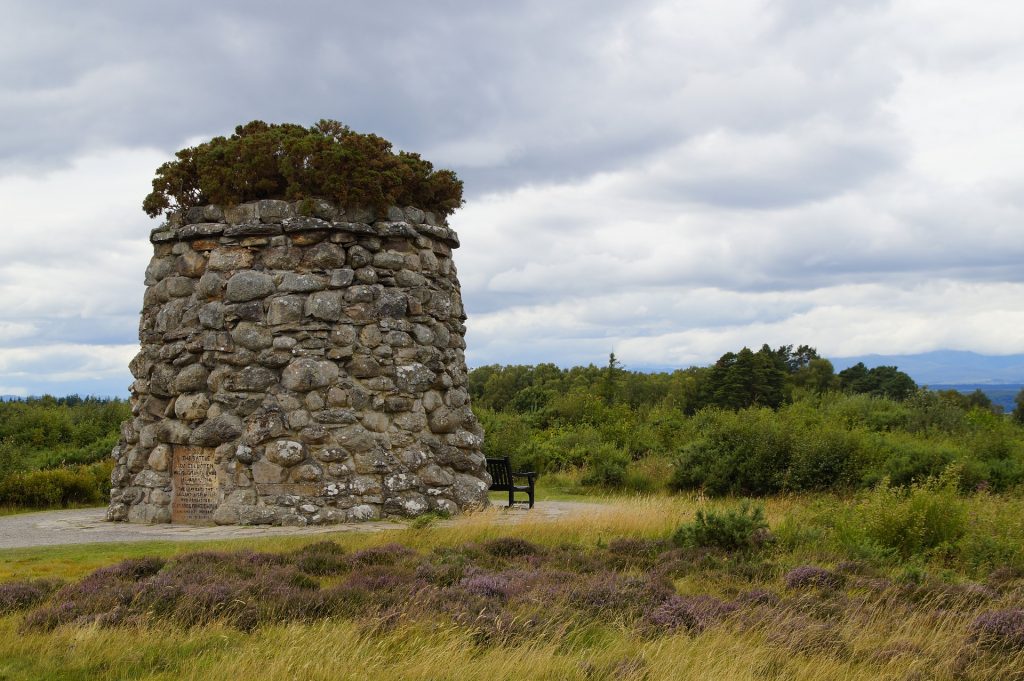To paraphrase a famous saying: “Those who do not learn from history are doomed to repeat it.”
To people of Scottish descent and especially Highlanders, the name “Culloden” still evokes emotion hundreds of years after the disastrous battle that took place on that moor. The battle itself was a defeat, but the cause for which it was fought might yet have been won had the Jacobite leaders not given up.
To me, Culloden represents many different things: the hope of freedom, the failure to persevere in the face of defeat, the tragedies of the Rising’s aftermath, the immorality of war and conquest and greed, the injustice of oppression, and the courage and resilience of the Scottish people.
Is my view coloured by sentiment? Of course. Distance of the event in time and place, widely varied attitudes of histories I have read, romanticized accounts in media, and pride in my own heritage all tend to wash my mental images of Culloden with a rosy hue. But the basic truth is that Culloden was a turning point in Scottish history, and remains for many an unhealed wound.
Will that ancient ache of an entire people affect the future? If so, how?
History is usually clouded by passions, and is written and rewritten by people with their own agenda. As a result, the lessons of history often go unlearned. Motives and intent go unrecognized, mistakes go uncorrected, actions taken lead along the wrong path, and tragedy is repeated.
I believe that what we must learn from Culloden and the Rising of 1745 is simply that freedom is valuable; there are some who would take it away from us if we fail to note their actions and stand against them; maintaining freedom takes work; regaining it once lost is difficult and costly and by no means assured; and there is always another chance if we do not sink into despair.
That’s my theory and I’m sticking to it.
[Thanks to pixabay.com/Efraimstochter for the featured image.]



